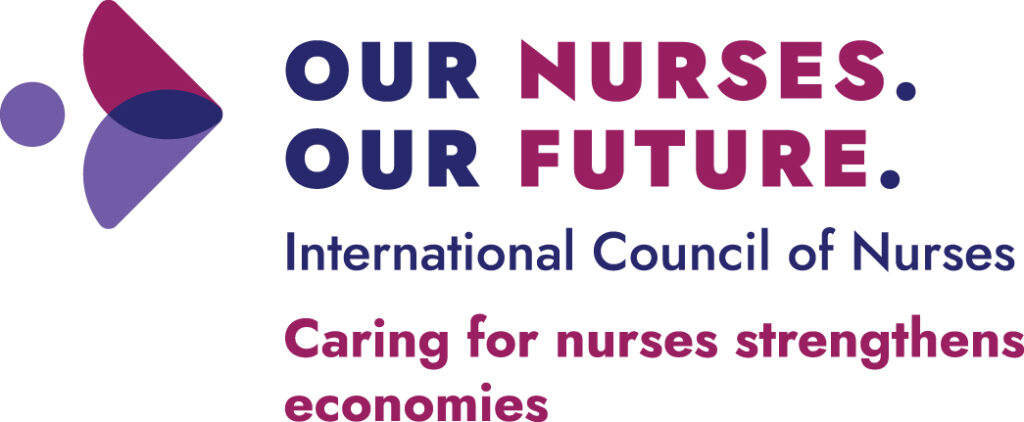Across the UK, many registered nurses are considering a career change, leaving behind bedside roles in search of better balance, fulfilment, and progression. According to recent data from the Royal College of Nursing, early departure from the profession is on the rise, with a 43% increase in nurses leaving within 10 years of registration and a 67% rise in those leaving within 5 years.
These trends pose risks to patient care, but they also reveal a deeper shift. Nurses are discovering that their clinical experience, nursing skills, and desire to help others can thrive in new environments. This blog offers valuable career advice, highlighting some of the most promising career change options for nurses who are ready to explore meaningful roles beyond the ward.
The term “outside the ward” refers to non-bedside nursing job roles that do not involve direct inpatient care, yet still rely on core nursing expertise. These include both clinical jobs in community or remote settings and non-clinical positions across industries such as tech, education, law, and corporate health.
Nurses in the UK may choose these paths to avoid long shifts, reduce burnout, or seek roles where they can specialise and grow. For nurses who want to change but stay within healthcare, this shift presents exciting opportunities to advance your career while preserving your purpose.
Below is a curated list of high-demand career pathways that make use of your nursing or healthcare background. These are grouped into clinical roles outside the ward and non-clinical jobs for nurses.
School Nurse
School nurses work in educational settings, managing immunisations, health education, and care plans for students. A degree in nursing and school-nurse training are required. It’s a common career change for nurses seeking family-friendly hours. With experience, they can advance to regional school health coordinator or public health leadership roles.
Occupational Health Nurse
These nurses support employee well-being in workplaces, conducting risk assessments, health surveillance, and return-to-work planning. An NMC registration and additional training in occupational health are typically required. Senior roles include occupational health advisor, team leader, or consultant in corporate health strategy.
Public Health Nurse/Community Nurse
Focused on prevention and health promotion, these nurses work in community settings to support vulnerable populations. They often partner with councils or NGOs. With career progression, nurses can move into programme development, policy-making, or senior public health commissioning roles.
Clinical Research Nurse
These nurses coordinate clinical trials, recruit participants, and ensure regulatory compliance. Employers include NHS trusts, research institutions, and pharmaceutical firms. Career pathways lead to senior research coordinator, clinical operations manager, or principal investigator support roles.
Telehealth/Virtual Nurse Advisor
Telehealth nurses deliver remote care via phone or video, supporting triage, chronic condition monitoring, and virtual consultations. A background in general practice nursing and good tech skills are essential. Growth can lead to team lead, service development nurse, or digital health consultant roles.

Nurse Lecturer/Nurse Educator
These roles involve teaching student nurses, developing curricula, or running simulation labs at universities or training centres. A master’s degree or PGCert in education is usually required. Progression can lead to senior lecturer, academic programme director, or curriculum developer positions.
Nurse Case Manager/Disability Assessor
Case managers coordinate patient care plans; disability assessors evaluate applicants for government benefits. Both roles use strong assessment and administrative skills. With experience, nurses can step into clinical governance, quality assurance, or health service management roles.
Health Informatics Specialist
These professionals oversee electronic medical records, data reporting, and digital system implementation. A nursing background combined with IT or analytics training is key. Career progression includes digital health lead, NHS informatics manager, or Chief Nursing Information Officer (CNIO).
Legal Nurse Consultant/Compliance Nurse
These roles involve reviewing clinical documentation, supporting legal reviews, or ensuring policy adherence in healthcare organisations. Nurses with legal or auditing interests are well-suited. Growth can lead to senior consultant, risk manager, or regulatory compliance lead roles.
Pharmaceutical/Medical Device Trainer or Representative
These nurses educate clinicians on medications or devices, often in partnership with pharmaceutical companies. A strong clinical background and presentation skills are essential. Career advancement may include regional trainer, product manager, or medical liaison roles.
Many nurses are choosing alternative careers for nurses because healthcare settings have changed, and their skills are needed beyond the ward. Remember that nursing skills like clinical judgement, empathy, and organisation are highly transferable. Whether you become a nurse consultant, nurse educator, or work in clinical research, your competence will shine in your next role.
Choosing a new career is valid, strategic, and supported by current trends. You don’t have to leave the nursing profession to benefit from better conditions, flexibility, and growth.
If you’re a nurse considering a career change, Verovian Healthcare Recruitment Agency is here to help. We specialise in placing nurses in the UK into flexible, rewarding roles across telehealth, case management, education, health informatics, and more.
Register now and discover how we can help you transition confidently into your next career outside the ward.
If you're looking to progress your nursing career, becoming a Nurse Practitioner (NP) could be the ideal next step. NPs play a vital role in the UK healthcare system, offering expert clinical care, managing complex cases, and often working autonomously across various settings. In this guide, we outline the steps to becoming an NP, the qualifications required, and what to expect from this high-impact role.
A Nurse Practitioner, commonly referred to as an Advanced Nurse Practitioner (ANP) or Advanced Practice Nurse (APN), is a highly skilled and experienced Registered Nurse (RN) with advanced clinical training. NPs can assess, diagnose, manage treatment plans, and prescribe medications, often working independently or as part of multidisciplinary teams. The role is common in primary care, urgent care, and specialist services.
NPs require a unique combination of technical knowledge and personal attributes:
Start by completing an NMC-approved nursing degree (BSc or Nursing Degree Apprenticeship), which provides the essential skills and clinical experience needed to become a Registered Nurse (RN).
After obtaining your nursing degree, register with the NMC to practice as an RN. This ensures that you meet the standards required to deliver safe and ethical care.
Work for 2-3 years in clinical settings such as hospitals or primary care as an RN. This hands-on experience is essential for developing the clinical judgement needed to progress as a nurse practitioner.
Joining bodies like the Royal College of Nursing (RCN) and the Nursing and Midwifery Council (NMC) provides support, networking, and continuing education, essential for career growth, staying updated, and advancing as a Nurse Practitioner.
To become an NP, you’ll need to complete a Master’s degree in Advanced Clinical Practice. This qualification will equip you with advanced clinical knowledge, including diagnostics, prescribing, and leadership skills. Many nurses choose to study part-time to balance their clinical roles.
The V300 course enables NPs to prescribe independently, including controlled drugs, within their scope of practice. This qualification is usually integrated into the ACP Master’s or can be taken separately.
Document your skills, procedures, leadership activities, and ongoing professional development. Employers use this portfolio to assess your readiness for advanced practice roles.
Once qualified, you can apply for NP roles in NHS Trusts, GP practices, urgent care centres, or private healthcare settings. Working with a specialist recruitment agency such as Verovian Healthcare Recruitment Agency can help you identify roles that align with your experience, location preferences, and clinical interests.
Nurse Practitioners must complete NMC revalidation every 3 years to maintain their certification as nurse practitioners. This involves ongoing professional development (CPD), reflective practice, and peer discussions to ensure your skills remain up to date.

In the UK, Nurse Practitioners (NPs) can specialise in:
In 2025, NPs are in high demand due to NHS workforce pressures, an ageing population, and increasing healthcare complexity. This demand spans primary care, community health, and hospital-based services.
Salary Expectations:
Nurse practitioners are expected to play an increasingly central role in reshaping NHS services. As pressures on GPs and hospital doctors rise, NPs are stepping in to manage complex cases, lead clinics, and enhance care continuity. With expanded prescribing rights and diagnostic authority, NPs offer a flexible, efficient solution to staffing challenges, delivering safe, patient-focused care across sectors.
Becoming a nurse practitioner is a rewarding career move that combines clinical excellence with greater autonomy and leadership. By gaining the right qualifications, clinical experience, and ongoing education, you can join the growing workforce of NPs helping to shape the future of UK healthcare.
Verovian Healthcare Recruitment Agency connects skilled nurse practitioners with top healthcare employers across the UK. Contact us today to explore exciting opportunities and take the next step towards a rewarding and impactful career in healthcare. Your future starts here!
As May 12th approaches, the world gets ready to celebrate International Nurses Day—a heartfelt tribute to the nurses who form the backbone of healthcare systems everywhere. More than just a date on the calendar, this annual event is a powerful reminder of the compassion, resilience, and expertise that nurses bring to their roles every single day.
Each year, International Nurses Day not only acknowledges individual contributions but also inspires broader conversations about the support and recognition nurses need to thrive. It’s a moment when healthcare professionals, communities, and leaders come together to reflect on the past, look to the future, and show appreciation for the people who care for us all.
In this blog, we’ll reveal the official theme for International Nurses Day 2025, as set by the International Council of Nurses (ICN), and share practical wellbeing tips to help you, as a nurse, take care of your own health and well-being.
The International Council of Nurses (ICN) has announced that the theme for International Nurses Day 2025 will be “Caring for nurses strengthens economies.” This powerful message continues the momentum of the multi-year campaign “Our Nurses. Our Future.”, which aims to elevate the profile of nursing and reaffirm the profession’s central role in building resilient health systems.
This year’s theme underscores a vital truth: when nurses are cared for—physically, mentally, and professionally—entire healthcare systems and national economies benefit. Dr Pamela Cipriano, president of the ICN, emphasised that the campaign is not only about raising awareness of the challenges nurses face but also about promoting tangible, evidence-based solutions to improve their well-being. These solutions include better working conditions, mental health support, and policies that prioritise retention and career development.
By focusing on the well-being of nurses, the 2025 theme invites stakeholders to take real action. It calls on governments, healthcare organisations, and communities to recognise that a strong nursing workforce is a cornerstone of public health and economic stability. Investing in nurses today is an investment in a healthier, more secure future for all.
Read Also: The International Nurses Day 2024
As we celebrate International Nurses Day 2025, it's the perfect time for nurses to pause and prioritise their own health—physical, mental, and emotional. Here are a few wellbeing tips to help you thrive in your profession and beyond:
As a nurse, you give so much of yourself to care for others—this International Nurses Day, let it be a reminder that your well-being matters too. The 2025 theme is a call for change: a future where you're supported, valued, and empowered in every part of your career. Whether you’re at the bedside, in the community, or leading change, know that your role is vital—and so is your health and happiness. Let’s keep pushing for workplaces where you can thrive, not just survive. You deserve it.

Are you an internationally trained nurse looking to work in the UK? Registering with the Nursing and Midwifery Council (NMC) is a crucial step in starting your nursing career in the UK. While the process may seem daunting, this step-by-step guide will help you navigate it with confidence.
From verifying your qualifications to taking the Test of Competence, we’ll break down each stage to ensure a smooth application process. Read on to learn how you can successfully register with the NMC and embark on your UK nursing journey!
First things first, you'll need to gather all your essential documents. This includes your nursing qualifications, transcripts, evidence of relevant clinical experience, and proof of identity. Once you've got everything in order, head to the NMC's online application portal and complete the initial application. This is where you will submit your application, track your progress, and receive updates.
As an international nurse, you must demonstrate proficiency in English. The NMC accepts the following tests:
For full details on English language requirements, visit the NMC English Language Guidance.
To assess your nursing skills and knowledge, you must pass the NMC Test of Competence, which consists of two parts:
The CBT evaluates your theoretical nursing knowledge and is conducted at approved Pearson VUE test centres worldwide. It is divided into two sections: Part A, which focuses on numeracy, and Part B, which covers clinical questions. The total fee for both parts of the CBT is £83. To support your preparation, study materials and sample questions are available on the Pearson VUE website.
The OSCE is a practical exam designed to assess your clinical and communication skills. It must be taken in the UK at an approved test centre. To help you prepare, a range of resources is available on the NMC OSCE webpage. The fee for the OSCE is £794.
Once you meet the eligibility and language requirements, you can complete your registration application through your online NMC account. As part of the process, you will need to provide proof of identity, evidence of language proficiency, and registration verification from your home country. Additionally, you must submit documentation demonstrating good health and character, including identity, health, and character evidence. A professional indemnity arrangement is also required to ensure you have appropriate coverage for your practice. Finally, you must pay the £153 registration fee to complete your application.

After successfully passing the competency tests and completing all required verifications, the NMC will contact your referees to confirm your qualifications and other relevant details. Once all supporting documents have been submitted, the NMC aims to review your application within 30 days and will notify you by email regarding their decision and the next steps. A final decision will be made within three months of receiving your completed application.
If your application is approved, your name will be added to the NMC Register, officially granting you the authority to practise as a nurse in the UK. You will then receive your NMC PIN, which serves as your professional identification and confirms your registration status.
Now that you are officially registered, it’s time to advance your career with the right job opportunity. Many NHS trusts and private healthcare providers actively recruit internationally trained nurses, and finding the perfect role can be overwhelming. That’s where Verovian Nursing Agency comes in.
At Verovian Nursing Agency, we specialise in matching qualified nurses like you with leading healthcare employers across the UK. Whether you're seeking a role within the NHS, a private healthcare position, or a flexible locum opportunity, our dedicated team is here to guide and support you every step of the way. Let us help you find a rewarding nursing job that aligns with your skills, experience, and career aspirations. Register with us today and take the next step towards an exciting new opportunity!
Navigating the NMC registration process may seem complex, but with the right guidance, it can be a smooth journey. Whether you’re just starting your application or preparing for the OSCE, following these steps will help you achieve your goal of becoming a registered nurse in the UK.
Nursing is built on a foundation of compassion, integrity, and unwavering dedication to patient care. At the core of this profession lies the Nursing and Midwifery Council (NMC) Code—a comprehensive guide that sets the standards for professional practice, ensuring nurses deliver safe, effective, and ethical care.
This blog post explores the key principles of the NMC Code, revealing how it shapes clinical decision-making, strengthens patient safety, and fosters accountability across the healthcare sector. Whether you're a seasoned nurse seeking to refine your practice or an aspiring professional preparing to enter the field, discover how the NMC Code serves as your compass, guiding every step of your nursing journey.
The NMC Code sets the essential standards that all nurses, midwives, and nursing associates in the UK must uphold. Think of it as your professional compass—a framework that guides your conduct and practice while empowering you to navigate the complexities of patient care with confidence and integrity.
Its principles are designed to protect patients, support ethical decision-making, and ensure accountability in every aspect of your work. The Code is built around four key themes:
Prioritising people involves treating individuals with dignity, respecting their preferences, and responding to their physical, social, and psychological needs. Nurses must act in the best interests of those in their care, ensuring privacy and confidentiality. For example, when supporting a patient with dementia, using a calm and respectful approach maintains their dignity and reduces anxiety. Upholding these principles builds trust, enhances patient well-being, and reflects the core values of compassionate care.
Practising effectively means delivering evidence-based care, clear communication, and teamwork. Nurses should follow the latest guidelines—for example, using updated protocols for diabetes management to reduce complications. Clear communication with patients and colleagues enhances care, while sharing skills and knowledge supports better outcomes. Accurate records ensure continuity of care and accountability. When delegating tasks, nurses must ensure the individual is competent, and maintaining appropriate indemnity cover provides legal protection. Effective practice ultimately benefits both patients and the profession.
Preserving safety requires vigilance, competence, and swift action. Nurses must practise within their scope, addressing mistakes openly and acting promptly to mitigate risks. For example, reporting a medication error immediately protects the patient and maintains trust. In emergencies, nurses should provide assistance until further help arrives. Advocating for vulnerable individuals and ensuring medications are administered correctly aligns with professional and legal standards, reinforcing the profession’s commitment to safety.
Promoting professionalism and trust means upholding the reputation of the nursing profession through consistent, ethical conduct. Nurses should meet all registration requirements, maintain ongoing development, and cooperate with investigations transparently. Addressing complaints constructively and leading healthcare teams enhances both patient wellbeing and care quality. By demonstrating integrity and fostering collaboration, nurses uphold public trust and strengthen the credibility of the profession.
For a comprehensive overview of the NMC Code, visit the NMC official website.



Here are some practical tips for integrating the NMC Code into your everyday practice:
See the guidance and supporting information on the NMC Code standards here.
Navigating the complexities of modern healthcare requires more than just clinical expertise—it demands a steadfast commitment to professional standards and ethical practice. The NMC Code serves as your professional compass, guiding you through the challenges and ensuring that every decision you make is in the best interests of your patients. By embodying the principles of the NMC Code, you’re not only enhancing your own professional development but also contributing to a higher standard of care
Verovian Nursing Recruitment Agency stands out as a beacon of opportunity and purpose. With our mission-driven culture, commitment to professional growth, inclusive environment, and emphasis on work-life balance, we offer more than just a job—we offer a chance to make a real difference. Whether you're a seasoned professional or just starting your career, there's a place for you here. Register now with Verovian Nursing Agency and start making an impact.
For many Healthcare Assistants (HCAs), the journey to becoming a Registered Nurse (RN) is a natural progression. It’s a rewarding career move that offers greater responsibilities, opportunities, and the chance to make a significant impact on patient care. If you’re considering this transition, this guide will walk you through the steps, challenges, and resources available to help you succeed.
As an HCA, you already play a vital role in patient care, often acting as the backbone of the healthcare system. Transitioning to an RN role allows you to:
Achieve Career Growth: Take on advanced responsibilities and specialise in areas like adult nursing, mental health nursing, or children’s nursing.
Earn Higher: RNs earn a considerably higher salary, with starting pay on the NHS Band 5 scale.
Make a Greater Impact: Play a leading role in delivering complex care and shaping patient outcomes.
To become an RN, you’ll need to complete a nursing degree approved by the Nursing and Midwifery Council (NMC). Before applying, ensure you meet the entry requirements, which typically include:
If you don’t meet the academic requirements, consider pursuing an Access to HE Diploma tailored for nursing. Many universities recognise this qualification as a pathway to nursing programs.
There are several routes to becoming a nurse, depending on your circumstances:
This is the most straightforward path, typically taking three years to complete. During this time, you can specialise in areas such as adult nursing, mental health nursing, or child nursing. Many universities offer placements within NHS trusts, providing valuable hands-on experience. For example, University College London (UCL) and the University of Manchester offer nursing degree programs with clinical placements in NHS settings.
Alternatively, you can study part-time through institutions like the Open University, which may take five to six years. This route allows you to continue working as a healthcare assistant (HCA) while completing your degree.
A nursing degree apprenticeship is a fantastic option for healthcare assistants (HCAs) looking to transition into a registered nurse (RN) role while continuing to earn a salary. Typically taking around four years to complete, the apprenticeship equips you with a nursing degree and eligibility to register with the Nursing and Midwifery Council (NMC) as an RN. With hands-on experience and mentorship, you can specialise in areas like adult nursing, paediatrics, or mental health while applying your learning in real clinical settings. To get started, speak with your employer about available opportunities or explore programs listed on the GOV.UK Apprenticeship Website. This option is ideal for HCAs who want to advance their careers without stepping away from the healthcare workforce.
If you're a healthcare assistant in England, another excellent route to becoming a registered nurse is the Nursing Associate Training programme. This role bridges the gap between HCAs and RNs, allowing you to take on more advanced responsibilities while gaining valuable experience. Nursing associates work across various healthcare settings, providing hands-on care and supporting RNs in delivering complex care.
The program typically lasts two years and combines work-based learning with academic study, allowing you to earn while you learn. Once qualified as a nursing associate and registered with the Nursing and Midwifery Council (NMC), you can take an additional “top-up” course to become a fully qualified RN. For instance, the University of West London and Liverpool John Moores University offer such programs, providing flexible pathways that allow you to gradually progress in your career while continuing to work. This option is particularly appealing for HCAs looking to balance their professional and academic commitments.


Once you’ve completed your nursing education, the next step to becoming a registered nurse with the NMC is to pass the Test of Competence. This consists of two parts: a computer-based exam that tests your theoretical knowledge and an Objective Structured Clinical Examination (OSCE) that assesses your practical skills in simulated scenarios. After successfully passing these exams, you can submit your application to the NMC. You'll need to provide proof of your nursing qualification, identity documents, a DBS check, character references, and a certificate confirming you’re fit to practice.
Along with submitting your documents, you’ll also need to pay the application fee and complete a health and character declaration. Once your application is reviewed and processed by the NMC, you’ll receive confirmation of your registration, allowing you to practice as a registered nurse in the UK. After registration, you’ll need to maintain your professional standards through Continuing Professional Development (CPD) and revalidate every three years.
Before committing to your journey, it’s essential to weigh the following:
Transitioning from HCA to RN is not without its challenges. Balancing work, study, and personal commitments can be demanding, but with determination and support, it’s achievable. Here are some tips:
Transitioning from a Healthcare Assistant (HCA) to a Registered Nurse (RN) is a life-changing journey that requires dedication, planning, and resilience. While the process may involve challenges, the rewards—both personal and professional—are immeasurable. As an RN, you'll not only enjoy greater career opportunities and financial stability but also the privilege of delivering advanced patient care and shaping healthcare outcomes.
Explore routes like nursing degrees, apprenticeships, or the Nursing Associate Training programme while considering your goals, finances, and support systems. Your experience as an HCA provides a strong foundation—combine it with determination and the right resources to achieve your dream of becoming a registered nurse and making a meaningful impact in healthcare.
At Verovian Nursing Recruitment Agency, we specialise in connecting talented professionals with fulfilling and rewarding roles in the care sector. Whether you are looking to work as a support worker or a care assistant, we offer both locum and permanent roles across the UK that are tailored to your skills and career aspirations.
We understand the importance of work-life balance, which is why we provide flexible job opportunities to suit your needs, whether you’re looking for full-time, part-time, or temporary positions. Take the next step in your career today! Browse our current job openings and discover the exciting opportunities waiting for you to help others while advancing your own career.
The healthcare job market is evolving at a rapid pace, and 2025 is shaping up to be a pivotal year for professionals across the sector. Whether you’re a nurse, healthcare assistant, or support worker, staying ahead of market trends is key to securing your next role. This guide explores what to expect in 2025 and provides actionable tips to help you navigate the job market with confidence.
From artificial intelligence (AI) to telemedicine, technology is revolutionising healthcare delivery. For nurses, healthcare assistants, and support workers, this means embracing digital tools like electronic health records and remote monitoring systems. Staying updated on relevant software and systems is no longer optional; it’s essential for providing high-quality care and remaining competitive in the job market.
The demand for nurses continues to grow, with workforce shortages presenting both challenges and opportunities. According to the Royal College of Nursing, there will be 2,000 fewer nursing students graduating in 2025 compared to 2024. This alarming trend is compounded by a projected supply-demand gap of 140,600 nurses in the NHS in England by 2030/31, underscoring the urgent need for additional workforce planning and policy intervention.
For these healthcare professionals, this means increased opportunities for those ready to step into the gap. Employers are actively seeking skilled and adaptable candidates, making this an ideal time to advance your career. Whether you’re considering upskilling, exploring locum roles, or specialising in a niche area, the evolving job market offers significant potential for growth.
Employers are recognising the importance of employee well-being. Flexible working options, including hybrid and locum roles, are becoming more common. For nurses and support workers, this can mean opportunities to choose shifts that fit their lifestyle, reducing burnout and improving job satisfaction.
Professionals across the sector need to stay informed about updates from governing bodies like the NMC. Changes in standards and requirements can impact your career trajectory, so proactive compliance is vital. This includes ensuring your revalidation is up to date and meeting CPD requirements.


Investing in continuing professional development (CPD) is crucial. Whether you’re a nurse exploring advanced practice or a support worker aiming to specialise in mental health support, expanding your skill set will make you a more attractive candidate.
In a competitive market, a professional online profile can set you apart. Platforms like LinkedIn allow you to showcase your experience, connect with potential employers, and stay informed about job opportunities. Highlighting certifications and CPD achievements can further enhance your profile.
A generic CV won’t cut it in 2025. Customise your CV and cover letter to highlight your most relevant skills and experiences for each role. For example, support workers can emphasise their experience with specific client groups, while nurses can showcase their expertise in specialised areas like paediatrics or mental health.
Healthcare roles increasingly require strong communication, empathy, and teamwork. Nurses, healthcare assistants, and support workers should highlight examples of how they’ve made a difference in patients’ lives through these skills.
The demand for nurses and support workers remains high, particularly in community and mental health settings. Highlight your adaptability and willingness to work in diverse environments to increase your chances of securing a role. Showcasing your ability to manage complex cases or collaborate with multidisciplinary teams can give you an edge.
Healthcare assistants play a vital role in supporting patients and nursing staff. Demonstrating a proactive approach to patient care, along with a willingness to take on additional training, can open doors to new opportunities. Employers value candidates who show initiative and a strong work ethic.


Navigating the competitive healthcare job market can be a daunting experience. Finding the right role that aligns with your skills, values, and career aspirations can often feel like an uphill battle. Verovian Nursing Recruitment Agency, we understand the unique challenges faced by healthcare professionals during their job search.
Our team of experienced recruiters specialises in connecting talented individuals with rewarding career opportunities across the UK. Whether you’re a seasoned nurse, a dedicated healthcare assistant, or a skilled support worker, we are committed to finding the perfect match for your skills, experience, and preferences.
With an extensive network of leading healthcare providers, we give you access to exclusive job openings—whether you’re looking for permanent positions, locum work, or more flexible roles. We take the time to understand your unique career goals and aspirations, offering personalised support throughout the recruitment process, from CV optimisation and interview coaching to salary negotiations.
But our commitment doesn’t stop there. We are dedicated to your long-term success, offering continuous career guidance and professional development resources to help you grow in your role and beyond.
At Verovian, you’re not just another candidate—you’re a valued partner. We’re here to help you navigate the healthcare job market, secure a role that truly aligns with your aspirations, and achieve lasting career growth. Choose Verovian Nursing Recruitment Agency in 2025 and let us help you make your next career move your best one yet.
As the healthcare job market in 2025 continues to evolve, it’s clear that there are abundant opportunities for those who are prepared. By staying informed on industry trends, continually developing your skills, and partnering with a trusted recruitment agency like Verovian Healthcare Recruitment, you can position yourself for success and take your career to the next level. Don’t wait for opportunities to find you—take the first step today. Register with us and let us help you navigate your career path in the new year. Together, we can make 2025 your best year yet!
As a nursing associate, you play a crucial role in delivering compassionate, quality care to patients every day. But did you know that revalidation is one of the key ways to keep that care top-notch? Revalidating as a nursing associate isn’t just about checking boxes—it’s about honing your skills, enhancing patient trust, and staying at the forefront of best practices in healthcare. This guide will walk you through everything you need to know about revalidation, from why it matters to how to succeed with confidence.
Revalidation is a process led by the Nursing and Midwifery Council (NMC) that ensures nursing associates continue to meet professional standards. By going through revalidation every three years, you’re not only showing your commitment to safe, effective care but also investing in your professional growth. It’s a powerful way to boost confidence in your role, support patient safety, and adapt to ever-evolving practices.
If you’re a registered nursing associate, revalidation will come up every three years. Let’s break down what you’ll need:
You need to complete at least 450 practice hours over three years. It's essential to keep a detailed log of these hours. If you haven't met the required hours, you must successfully complete an approved return to practice program or a Test of Competence before submitting your application for renewal of registration.
You are required to complete a minimum of 35 hours of Continuing Professional Development (CPD), with at least 20 hours involving participatory learning. CPD activities may include attending workshops, conferences, or online courses relevant to your practice. It's essential to keep accurate records of your CPD, which must include the following:
Gathering feedback from patients, colleagues, and other professionals is essential for identifying areas where you can enhance your practice. Reflecting on this feedback fosters professional growth and development. You need to have collected five pieces of practice-related feedback within the three years since your last registration renewal or since you joined the register.
You need to write five reflections on your practice, focussing on the insights gained from your CPD activities or feedback received. These reflections should illustrate how you've applied your learning to enhance patient care and how they align with the NMC code.
You must engage in at least one reflective discussion with another NMC-registrant. During this discussion, cover your five written reflections on CPD, practice-related feedback, or significant experiences in your practice and their relation to the Code. Ensure that the NMC registrant you discuss with signs the approved form, which should include their name, NMC PIN, email, professional address, postcode, and the date of the discussion. This discussion validates your reflections and promotes peer support.
As part of the revalidation process, you must confirm that you are in good health and of good character, ensuring you are fit to practice. You need to declare if you have been charged or convicted of any criminal offence (including a conditional discharge) or if you have received a formal caution.
You must also disclose if you have been subject to any adverse findings that your fitness to practice is impaired by a professional or regulatory body (including those responsible for regulating or licensing a health and social care profession).
You are legally required to have a professional indemnity arrangement in place to practice. You must confirm that you have, or will have, suitable cover under an indemnity arrangement, ensuring you are protected while practicing.
You will need to confirm that you have shown an appropriate confirmer that you have met the revalidation requirements. This involves providing the name, NMC PIN (or other relevant professional identification number), email address, professional address, and postcode of the confirmer. The confirmer’s role is crucial as they review the evidence you have gathered and verify that you have fulfilled the revalidation criteria.


Let’s simplify the revalidation process into three key steps:
Revalidation may feel overwhelming at first, but you’re not alone! Here are some common challenges nursing associates face, along with ways to overcome them:
Revalidation isn’t just another requirement—it’s a golden opportunity to grow in your role. Here’s how it benefits you:
Revalidating as a nursing associate is a rewarding process that underscores your commitment to delivering excellent care. By dedicating time to learning, reflection, and skill development, you’re not just meeting a requirement—you’re investing in a brighter future for yourself and your patients. Start planning your revalidation journey today, and remember, every step you take strengthens both your practice and the healthcare community as a whole.
Ready to explore the rewarding opportunities ahead? Take the first step today by registering with Verovian Nursing Agency. Let us help you advance your healthcare career!
Revalidation is a crucial process for nurses, ensuring that their skills, knowledge, and professional standards remain current and in line with the Nursing and Midwifery Council (NMC) requirements. Whether you're a newly qualified nurse or a seasoned professional, understanding the revalidation process is essential to maintaining your registration and continuing your career in nursing.
In this guide, we'll walk you through everything you need to know about revalidation, from the steps involved to practical tips that will help you navigate the process with confidence.
Revalidation is a mandatory process for all nurses and midwives registered with the Nursing and Midwifery Council (NMC). Introduced in 2016, it aims to enhance public protection, promote good practice, and uphold professional standards. Every three years, you must complete revalidation to renew your NMC registration.
This process encourages you to reflect on the NMC Code in your practice and demonstrate your commitment to maintaining these standards.
Revalidation is built on several core components, each essential for maintaining your registration:
You need to complete at least 450 practice hours over three years (or 900 hours if you're registered as both a nurse and a midwife). It's essential to keep a detailed log of these hours. If you haven't met the required hours, you must successfully complete an approved return to practice programme or a Test of Competence before submitting your application for renewal of registration.
You are required to complete a minimum of 35 hours of Continuing Professional Development (CPD), with at least 20 hours involving participatory learning. CPD activities may include attending workshops, conferences, or online courses relevant to your practice. It's essential to keep accurate records of your CPD, which must include the following:
Gathering feedback from patients, colleagues, and other professionals is essential for identifying areas where you can enhance your practice. Reflecting on this feedback fosters professional growth and development. You need to have collected five pieces of practice-related feedback within the three years since your last registration renewal or since you joined the register.
You need to write five reflections on your practice, focussing on the insights gained from your CPD activities or feedback received. These reflections should illustrate how you've applied your learning to enhance patient care and how they align with the NMC code.
You must engage in at least one reflective discussion with another NMC-registered nurse or midwife. During this discussion, cover your five written reflections on CPD, practice-related feedback, or significant experiences in your practice and their relation to the Code. Ensure that the NMC registrant you discuss with signs the approved form, which should include their name, NMC PIN, email, professional address, postcode, and the date of the discussion. This discussion validates your reflections and promotes peer support.
As part of the revalidation process, you must confirm that you are in good health and of good character, ensuring you are fit to practice. You need to declare if you have been charged or convicted of any criminal offence (including a conditional discharge) or if you have received a formal caution.
You must also disclose if you have been subject to any adverse findings that your fitness to practice is impaired by a professional or regulatory body (including those responsible for regulating or licensing a health and social care profession).
You are legally required to have a professional indemnity arrangement in place to practice. You must confirm that you have, or will have, suitable cover under an indemnity arrangement, ensuring you are protected while practicing.
You will need to confirm that you have shown an appropriate confirmer that you have met the revalidation requirements. This involves providing the name, NMC PIN (or other relevant professional identification number), email address, professional address, and postcode of the confirmer. The confirmer’s role is crucial as they review the evidence you have gathered and verify that you have fulfilled the revalidation criteria.


Navigating the validation process can feel daunting, but breaking it down into steps makes it more manageable:
While revalidation is an essential process, it can come with challenges.
To make revalidation less stressful:
Revalidation is a vital part of your nursing career, ensuring that you continue to provide the best possible care to your patients. By starting the process early and staying organised, you can navigate revalidation with confidence and ease. Embrace the opportunity to reflect on your practice, learn from your experiences, and continue growing as a healthcare professional.
Ready to explore the rewarding opportunities ahead as a nurse? Take the first step today by registering with Verovian Nursing Agency. Let us help you advance your healthcare career!

